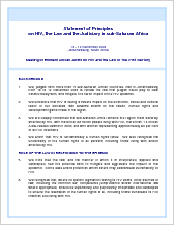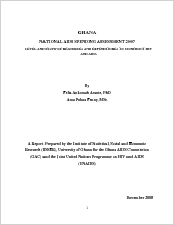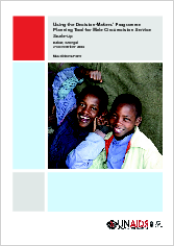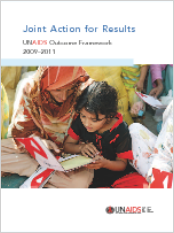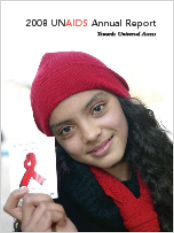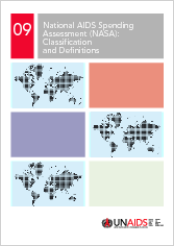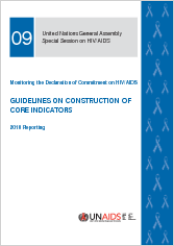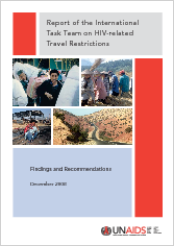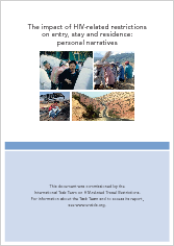Documents
Statement of Principles on HIV, the Law and the Judiciary in sub-Saharan Africa
12 December 2009
We call upon members of the judiciary to use their positions of power and influence to act as role models by providing leadership on the HIV epidemic in their communities. We commit to upholding the rule of law so that governments fulfil their national and international obligations relevant to HIV. We call upon UNAIDS to establish, as a matter of urgency, a Commission on AIDS and the Law that includes jurists and assists countries to align their laws with the International Guidelines on HIV/AIDS and Human Rights.
Documents
GHANA
23 March 2009
Considerable progress has been made in creating an enviable environment for increased partnerships and a stronger coordination of stakeholder activities for more effective response to the HIV and AIDS epidemic. Yet the funding of these activities remains a challenge for many implementers such as the NGOs and CBOs. A second round of the NASA was deemed necessary primarily to assess the level and trend of expenditures on the various HIV and AIDS programmatic areas.
Documents
Using the Decision-Makers’ Programme - Planning Tool for Male Circumcision Service - Scale-up - Dakar, Sénégal - 2-3 December 2008 - MEETING REPORT
20 April 2009
There is compelling evidence that male circumcision reduces the risk of female-to-male transmission of HIV. UNAIDS and WHO recommend that countries with high HIV prevalence and low levels of male circumcision introduce or scale up safe male circumcision services as part of a comprehensive HIV prevention strategy.
Documents
Joint Action for Results UNAIDS Outcome Framework 2009–2011
25 June 2009
The global response to the HIV epidemic is at a crossroads. The emergency footing of the response over the past 25 years and the broad social mobilization of stakeholders have spearheaded remarkable action and results. Yet the hard-won gains are fragile and call for a renewed commitment and leadership by the United Nations system. Our joint efforts have produced encouraging results, but many challenges lie ahead.
Documents
2008 UNAIDS Annual Report: Towards Universal Access
25 June 2009
Last year was a year of leadership, consolidation, partnership and transition. It was a year in which the hard work of previous decades came together to produce tangible and measurable results. Yet the hard-won gains are fragile and call for a renewed commitment and leadership by the United Nations system.
Documents
Monitoring the Declaration of Commitment on HIV/AIDS : guidelines on construction of core indicators : 2010 reporting.
13 August 2009
The purpose of these guidelines is to provide National AIDS Councils (or equivalent) with technical guidance on how to measure the revised list of core indicators for the implementation of the Declaration of Commitment on HIV/AIDS, adopted by Member States of the United Nations during the United Nations General Assembly Special Session on HIV/AIDS in June 2001. These guidelines provide technical guidance on the detailed specifications of the core indicators, on the information required and the basis of their construction, and on their interpretation. The guidelines also aim to maximize the validity, internal consistency and comparability across countries and over time of the indicator estimates obtained. In particular, the guidelines aim to ensure consistency in the types of data and methods of calculation employed.
Documents
Report of the International Task Team on HIV-related Travel Restrictions - Findings and Recommendations - December 2008
18 August 2009
This is the Report of the Task Team, presenting its Findings and Recommendations. The Task Team affirmed that HIV-specific restrictions on entry, stay and residence based on HIV status are discriminatory, do not protect the public health and are overly broad in terms of rationally identifying those whose entry or stay might result in an undue burden on public monies. According to the Task Team, such restrictions have always been ineffective but have become even more inappropriate in the age of globalization, increased travel, treatment for HIV, and national and international commitments to universal access to HIV prevention, treatment, care and support and the protection of the human rights of people living with HIV.
Documents
Mapping of restrictions on the entry, stay and residence of people living with HIV
18 August 2009
The Mapping of restrictions on the entry, stay and residence of people living with HIV was commissioned by the International Task Team on HIV-related Travel Restrictions. The Task Team was established by UNAIDS in January 2008 as an advisory/technical group whose role was to galvanize attention to such restrictions on national, regional and international agendas, calling for and supporting efforts towards their elimination. The principles of non-discrimination and the greater involvement of people living with HIV formed the core of the Task Team’s work and provided the context in which its efforts were set.

